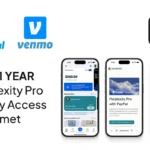Now Reading: 10 Expert Techniques to Slash Your E-commerce Cart Abandonment Rates
-
01
10 Expert Techniques to Slash Your E-commerce Cart Abandonment Rates
10 Expert Techniques to Slash Your E-commerce Cart Abandonment Rates

Cart abandonment is the silent killer of e-commerce profitability. When shoppers leave without completing their purchase, you’re not just losing a sale-you’re losing the marketing investment that brought them there. I’ve compiled the most effective tactics to reduce cart abandonment in e-commerce, based on data and proven results from successful online retailers.
Key Takeaways
To reduce cart abandonment in e-commerce:
- Simplify your checkout process and offer guest checkout options
- Ensure transparent pricing with no hidden fees
- Provide multiple payment options and flexible shipping
- Use exit-intent popups with incentives to capture leaving customers
- Implement abandoned cart email campaigns
- Build trust with security badges and clear return policies
- Optimize for mobile users and improve site performance
- Use social proof to increase buyer confidence
Simplify The Checkout Process
One of the biggest reasons customers abandon their carts is a complicated checkout process. Research shows that the more steps between adding an item to cart and completing a purchase, the higher the abandonment rate.
Reduce Form Fields
I recommend minimizing the number of form fields to only what’s absolutely necessary. Each additional field creates friction and increases the chance of abandonment. Focus on collecting only essential information and consider using autofill functionality to make the process even smoother.
Enable Guest Checkout
Forcing customers to create an account is a major conversion killer. In fact, many shoppers will leave immediately when faced with mandatory registration. I always advise offering guest checkout as the default option, with account creation presented as an optional step after purchase completion.
Add Progress Indicators
Progress bars show customers exactly where they are in the checkout process and how many steps remain. This creates a sense of momentum and reduces uncertainty. When shoppers can see they’re almost finished, they’re more likely to complete the purchase rather than abandon it midway.
Implement One-Page Checkout
When possible, consolidate your checkout to a single page. This approach has been shown to significantly reduce abandonment rates by removing the friction of multiple loading screens and steps. If a multi-page approach is necessary, ensure each transition is smooth and quick.
Useful Articles:
Ensure Transparent Pricing
Hidden costs are consistently cited as the number one reason for cart abandonment. Nothing frustrates customers more than seeing unexpected charges appear at the final checkout stage.
Display All Costs Upfront
I always emphasize the importance of showing the total cost as early as possible in the shopping journey. This includes the product price, shipping costs, taxes, and any additional fees. Being transparent builds trust and prevents unpleasant surprises that lead to abandonment.
Offer Free Shipping Options
Shipping costs can make or break a sale. Consider offering free shipping above a certain order value to encourage larger purchases while reducing abandonment. Make sure to prominently display this offer throughout your site to incentivize customers to reach the threshold.
Include Shipping Calculators
Adding a shipping calculator on product pages or in the cart allows customers to see exact shipping costs before reaching checkout. This transparency eliminates uncertainty and reduces the likelihood of abandonment due to shipping cost shock.
Provide Multiple Payment Options
Payment flexibility is crucial for reducing cart abandonment. Different customers have different preferences and limitations when it comes to payment methods.
Accept Various Payment Methods
I recommend offering a wide range of payment options including credit cards, PayPal, Apple Pay, Google Pay, and buy-now-pay-later services like Affirm or Klarna. The more options you provide, the more likely customers will find their preferred method and complete their purchase.
Implement One-Click Checkout
For returning customers, one-click checkout options dramatically reduce friction. By saving payment and shipping information securely, you can offer a streamlined experience that makes repeat purchases effortless.
Display Trust Badges and Security Seals
Security concerns often lead to abandonment during the payment stage. Displaying recognized security badges and payment protection guarantees near checkout buttons reassures customers that their information is safe. This simple addition can significantly boost conversion rates.
Useful Articles:
Use Exit-Intent Popups
Exit-intent technology detects when a user is about to leave your site and triggers a targeted popup to recapture their attention.
Offer Incentives to Stay
When a customer is about to abandon their cart, a well-timed discount offer can change their mind. I’ve seen great success with popups offering 10-15% off, free shipping, or a small gift with purchase to incentivize completion.
Create Urgency
Adding a time limit to your exit-intent offer creates a sense of urgency that can motivate immediate action. Phrases like “Limited time offer” or “Expires in 24 hours” encourage customers to complete their purchase now rather than later.
Ask for Feedback
Sometimes, exit-intent popups that simply ask why the customer is leaving can provide valuable insights while also giving you a chance to address their concerns. This approach not only helps reduce current abandonment but improves your process for future customers.
Implement Abandoned Cart Email Campaigns
Email recovery campaigns are one of the most effective strategies for reclaiming abandoned carts, with recovery rates of up to 10-15% when done correctly.
Send Timely Reminders
I recommend sending the first recovery email within 1-2 hours of cart abandonment, when the purchase is still fresh in the customer’s mind. Follow up with additional emails at the 24-hour and 48-hour marks if needed, but avoid overwhelming the customer.
Include Cart Contents
Make sure your emails include images and details of the abandoned products to jog the customer’s memory. One-click links to restore their cart make it easy for them to pick up where they left off.
Offer Incentives
Including a special discount or free shipping offer in your recovery emails can provide the extra push needed to complete the purchase. However, I suggest using these incentives strategically, perhaps only in the second or third email, to avoid training customers to abandon carts for discounts.
Personalize Your Approach
Personalized emails perform significantly better than generic ones. Use the customer’s name, reference specific products they viewed, and tailor your messaging based on their browsing behavior for maximum effectiveness.
Useful Articles:
Build Trust With Security and Clear Policies
Trust is a major factor in e-commerce conversions. Customers need to feel confident in both your products and your business practices.
Display Security Badges
Prominently feature recognized security badges and SSL certificates throughout your site, especially during checkout. These visual cues reassure customers that their personal and payment information is protected.
Provide Clear Return Policies
Uncertainty about returns is a common reason for abandonment. I always recommend making your return policy clear, generous, and easy to find. Knowing they can easily return a product if it doesn’t meet their expectations gives customers the confidence to complete their purchase.
Showcase Customer Reviews
Authentic reviews and testimonials build credibility and reduce purchase anxiety. Include product ratings and reviews on product pages and even in the cart to reinforce the quality of the items selected.
Offer Live Chat Support
Having immediate assistance available during the checkout process can address concerns before they lead to abandonment. Live chat support allows customers to get quick answers to their questions without leaving the checkout flow.
Optimize For Mobile Users
With mobile commerce growing rapidly, ensuring a smooth mobile checkout experience is essential for reducing abandonment.
Create a Responsive Design
Your checkout process must function flawlessly across all devices. I recommend regularly testing your mobile checkout flow to identify and fix any usability issues that could lead to abandonment.
Simplify Mobile Forms
Mobile users face additional challenges when entering information. Use larger form fields, enable autofill, and implement mobile-friendly features like numeric keypads for phone numbers to make the process easier.
Optimize Page Load Speed
Slow-loading pages are particularly problematic on mobile devices. Compress images, minimize code, and use accelerated mobile pages (AMP) where appropriate to ensure your checkout loads quickly on all connections.
Enable Mobile Payment Options
Mobile-specific payment methods like Apple Pay and Google Pay allow for faster, more convenient checkout on mobile devices. These options eliminate the need to enter card details on a small screen, significantly reducing friction.
Use Social Proof to Increase Confidence
Social proof leverages the psychological principle that people tend to follow the actions of others, especially in uncertain situations like online shopping.
Display Real-Time Activity
Showing notifications of recent purchases or the number of people currently viewing a product creates a sense of popularity and urgency. This social validation can be particularly effective during the consideration phase.
Highlight Popular Products
Marking items as “bestsellers” or “customer favorites” in the cart can reinforce the shopper’s decision and reduce second-guessing that leads to abandonment.
Include User-Generated Content
Customer photos and videos of products in use provide authentic validation that can be more persuasive than professional product images alone. This type of content helps customers visualize ownership and increases purchase confidence.
Implement Retargeting Strategies
Not all abandoned carts can be recovered immediately. Retargeting keeps your products in front of customers after they leave your site.
Use Display Ads
Retargeted display ads showing the specific products a customer abandoned can serve as effective reminders. I’ve found that adding a special offer to these ads can significantly increase their effectiveness.
Leverage Social Media Retargeting
Platforms like Facebook and Instagram offer powerful retargeting capabilities. Creating ads that showcase abandoned products with compelling calls-to-action can bring customers back to complete their purchase.
Consider SMS Retargeting
For customers who have provided their phone number, SMS reminders can be highly effective due to their immediate nature and high open rates. However, use this channel sparingly to avoid appearing intrusive.
Personalize the Shopping Experience
Personalization makes customers feel valued and understood, which can significantly reduce abandonment rates.
Recommend Relevant Products
Use browsing and purchase history to suggest complementary or alternative products that better meet the customer’s needs. Well-timed recommendations can address potential objections before they lead to abandonment.
Save Cart Contents
Automatically saving cart contents for returning visitors eliminates the frustration of having to find products again. This feature is particularly valuable for customers who may be researching across multiple sessions before deciding to purchase.
Create Targeted Offers
Analyze customer behavior to deliver personalized offers based on their specific interests and pain points. A discount on shipping for a customer who previously abandoned due to shipping costs can be much more effective than a generic promotion.
Reducing abandoned cart in e-commerce requires a multifaceted approach that addresses the various reasons customers leave without purchasing. By implementing these strategies-from simplifying checkout to personalizing the shopping experience-you can significantly decrease abandonment rates and boost your conversion rates.




















